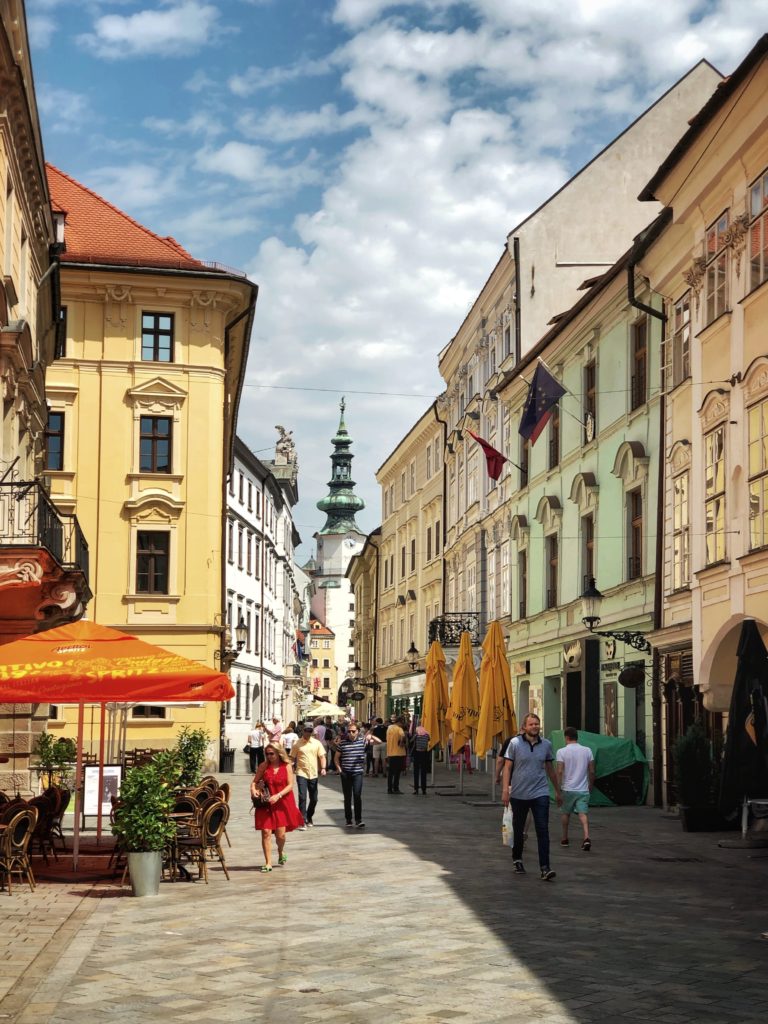Slovakia, situated in the heart of Europe, has a diversified heritage and varied geography, ranging from gothic buildings to rural regions to hills. As a result, foreigners coming to Slovakia will take advantage of several benefits that the country provides.
Relocating to Slovakia may mean acclimating to a new environment for several expats. Those moving to Slovakia will be glad to learn that the country offers sunny, comfy summertime and rainy, moist wintertime due to its location between the moderate and western temperature areas.

Moving to Slovakia:
Certain visas can enable you to move and reside in Slovakia for long-term or short-term periods. One of these options includes working in Slovakia. You can apply for the job in Slovakia, and then after receiving a job offer, you and your employer must submit some essential paperwork to the embassy. This procedure is much easier for the nationals of European countries. However, the visa of non-European citizens might demand more time and procedures.
Get a Job
If you are a citizen of an EU/EEA nation and hold a Blue Card (a residency visa awarded on the grounds of being a technically talented employee with a master’s degree), you will be eligible to operate in the country without having to go through a lot of red tapes.
You will, nevertheless, need to seek a working visa if you are a third-party citizen from beyond the EU/EEA. This will be granted based on a confirmed job contract. Therefore, you must find a job before filing for a visa.
After that, you must provide the following documents to the Ministry of labor:
- An authorized Working Visa request form (filled in Slovak and approved)
- A duplicate of your passport
- A photocopy of your residency card
- A duplicate of a certificate confirming your position as a third-country citizen with long-term residency in an EU Member Country (if applicable)
- Evidence of education
- Verified document of a professional agreement
- Certified power of attorney (if the request is filed on your account by your prospective workplace or by a third party)
Purchasing Real Estate
Because Slovakia is a part of the Eu Community, there are no legislative limits on outsiders purchasing a private home. Purchasing farm and woodland land, nevertheless, is subject to regulations.
You will be required to pay down a 10% deposit after you have decided on the house you intend to purchase. The pre-purchase contract will be outlined and approved by both sides at this stage.
In Slovakia, foreigners have the freedom to obtain a personal loan. The loan can be utilized to purchase either completed or unfinished property. The lowest credit term is typically four years, with a maximum loan term of twenty years. The rate of interest on a loan varies based on the lender.
Move Your Assets
Decide if you prefer (or are able) to carry your goods personally or if you will require the assistance of an overseas moving firm. If you’re moving lightweight or taking a brief road trip, you’ll almost certainly require expert assistance to transport your belongings.
Open A Bank Account
The National Bank of Slovakia (NBS) was founded in 1993 and is based in Bratislava. The National Bank is responsible for financial strategy in Slovakia, as well as issuing Slovak money and supervising the activity of other institutions. The National Bank of Slovakia does not handle private financial accounts. However, it can help with financial concerns and so on.
Obtain Medical Coverage
Numerous foreigners purchase personal healthcare insurance, even if it is not required by their native land, as the hospital in their host country is costly, or some medications and practices are unavailable. When purchasing healthcare coverage, make sure to look into things like the plan’s yearly and lifelong restrictions, any exemptions that may apply to you, if you are confined to therapy from certain forms of health professionals, and whether the plan includes immediate rescue transport



